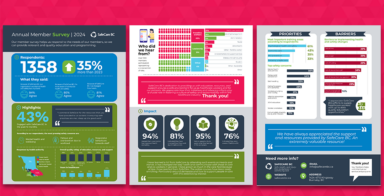Sleep is an essential part of our daily lives, allowing our bodies to rest and recover from the stressors of everyday life. It is crucial for both our physical and mental well-being. When it comes to mental health at work, sleep plays a vital role in our ability to perform well and maintain our emotional stability. In this article, we will explore the cost of fatigue, the effects of sleep deprivation on mental health, and strategies for combating fatigue in the workplace.
Workplace fatigue is a common problem that affects many employees. Factors that can influence fatigue at work include very long shifts, insufficient time to recover between shifts, poor sleep, repetitive work, and physically or mentally challenging work. Workplace fatigue can significantly impact physical and mental health.
The Impact of Fatigue in the Workplace
Fatigue can have a significant impact on workplace productivity and safety. When workers are tired, they are more likely to make mistakes, take longer to complete tasks, and have a decreased ability to concentrate. Fatigue impacts can lead to increased absenteeism, reduced work quality, and increased risk of incidents and injuries.
A study published in the Journal of Applied Psychology found that sleep deprivation is associated with reduced work performance, including lower productivity, decreased creativity, and reduced concentration ability. This study also found that sleep deprivation can lead to increased workplace incidents and injuries, highlighting the importance of sleep for workplace safety.
In addition to impacting productivity and safety, fatigue can negatively affect employee morale and job satisfaction. Workers who are tired and overworked are more likely to experience stress, anxiety, and burnout, which can lead to decreased motivation and engagement.
Sleep also plays a significant role in our ability to make decisions at work. One study found that sleep-deprived individuals were likelier to make poor decisions and engage in risky behaviour. The study found that sleep-deprived individuals had reduced activity in the prefrontal cortex, the brain area responsible for decision-making and risk assessment.
The Effects of Sleep Deprivation on Mental Health
Sleep deprivation is one of the most common causes of fatigue in the workplace. Workers who do not get enough sleep can experience a range of adverse effects on their mental health, including increased stress, anxiety, and depression.
According to a study published in the Journal of Occupational Health Psychology, sleep significantly reduces stress and improves overall well-being in the workplace. The study found that workers who reported better sleep quality also reported lower levels of stress, anxiety, and depression. Quality sleep is essential in regulating our emotions and reducing the effects of stress on our bodies.
Another study found that sleep-deprived workers were more likely to report symptoms of depression and anxiety than those who got enough sleep. In other research, workers who slept less than six hours per night were more likely to experience job burnout and reduced job satisfaction.
One of the most significant impacts of sleep on mental health at work is its effect on our ability to manage stress. According to a study published in the Journal of Sleep Research, those reporting poor sleep quality also had higher levels of workplace stress. Sleep is essential in regulating our stress response and reducing the effects of stress on our bodies. When we don’t get enough sleep, our bodies release stress hormones, which can lead to feelings of anxiety and overwhelm.
In addition to its impact on workers, fatigue can negatively affect workplace culture and morale. Workers who are tired and overworked are less likely to feel engaged and motivated, leading to decreased job satisfaction and increased turnover.
How to Identify Signs of Fatigue in the Workplace
Employees who are tired at work can put themselves, their co-workers, and the people they care for at risk, so it is vital to identify the signs of fatigue in the workplace. Some common symptoms of fatigue include:
- Yawning
- Tiredness even after sleep
- Difficulty concentrating and short-term memory problems
- Decreased motivation
Workers who are tired and overworked may also experience mood swings, irritability, and reduced performance. Fatigue can also manifest in physical symptoms such as headaches, body aches, and increased susceptibility to illness.
Strategies for Combating Worker Fatigue
While several factors contribute to workplace fatigue – both on and off the job – there are strategies that employers can use to address worker fatigue. Some approaches include:
- Consistent shift schedules, frequent breaks, minimize night shifts to no more than four per week, and ensure at least two consecutive days off per week
- Encouraging staff to report when fatigue may impact their work
- Training and education to help employees manage fatigue and sleep issues
- Ensuring that managers and supervisors can recognize the signs of fatigue
- Balancing workload and staffing
Employees also have a responsibility to address fatigue on the job. To reduce your risks of illness or incident caused by fatigue:
- Understand your own sleep needs and ensure that you have adequate rest and recovery time away from work
- Talk to your doctor if you can’t achieve quality sleep – there may be other factors involved, such as snoring or sleep apnea
- Monitor your alertness while at work
- Talk to your supervisor if you feel your fatigue will impact your work
- Stay hydrated, exercise, or take a break
In addition to these strategies, employers can also work to create a positive workplace culture that promotes engagement, motivation, and job satisfaction. By creating a supportive and healthy work environment, employers can help reduce fatigue’s impact on worker productivity and mental health.
Resources








